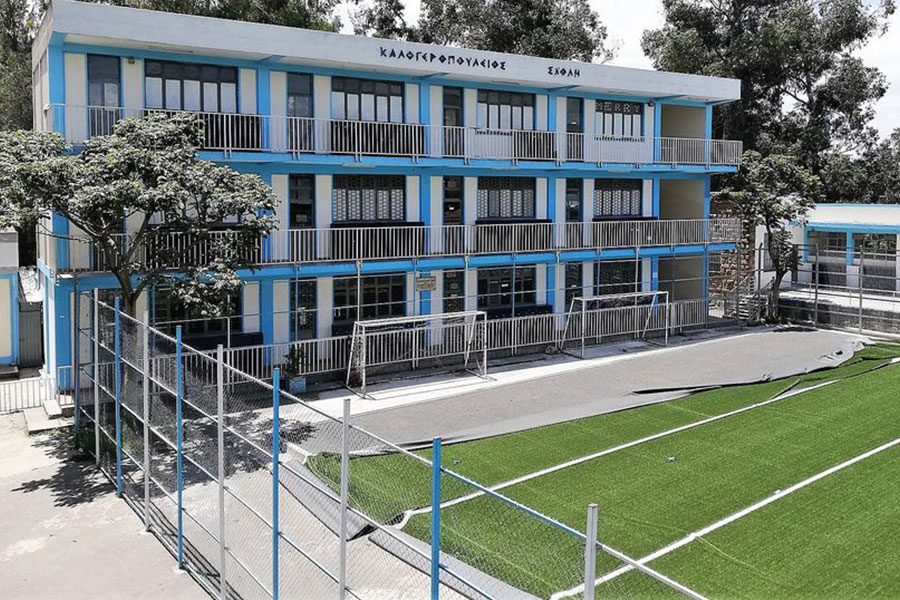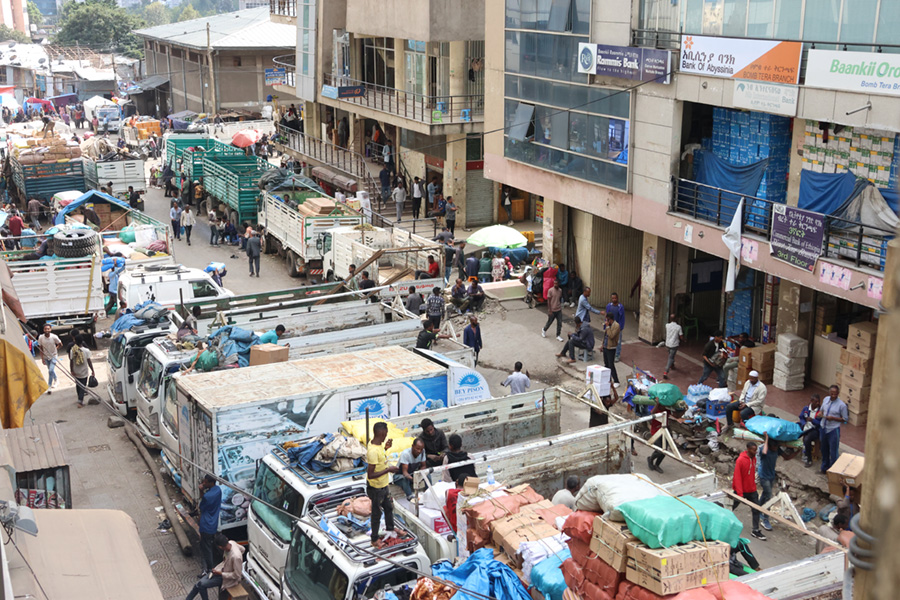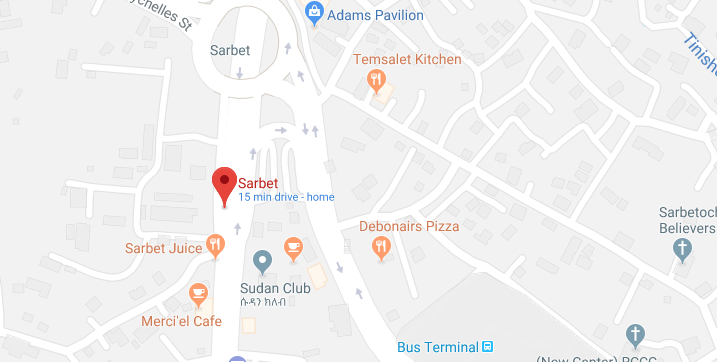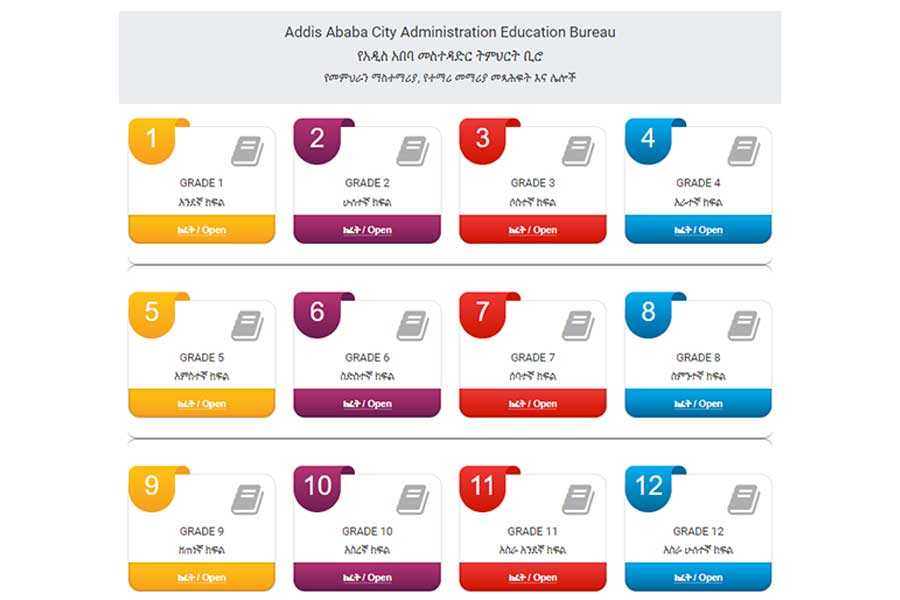
Life Matters | Dec 25,2021
A state-run biotechnology research institute has developed and completed the trials for a fast and simple-to-use Novel Coronavirus (COVID-19) test kit. Dubbed the LAMP-based test kit, it is a single-tube technique and a low-cost alternative to detect certain diseases.
A group of researchers under the Ethiopian Biotechnology Institute and the International Centre for Genetic Engineering & Biotechnology has been working on the project for the past four months. The Bill & Melinda Gates Foundation, which financed similar projects in Kenya, Nigeria and Cameroon, covered the 50,000-dollar cost for the project. The team implemented the research with 300 LAMP testing samples.
The exorbitant cost and high time-consumption of the polymerase chain reaction (PCR) test, the most commonly used, triggered the research, according to Molalegne.
"We compared the findings with both the Bejing Genomics Institute (BGI) kit and Liferiver kit that are commonly used in testing," said Molalegne Bitew (PhD), head of the research programme. "The LAMP test is as effective as the PCR tests."
The BGI kit is a testing kit produced by BGI Ethiopia, a subsidiary of BGI Genomics, a Chinese genomic data and testing solutions provider who joined the Ethiopian market in September 2020. Liferiver is a globally used real-time testing kit.
The Liferiver and BGI kits require an expensive machine that can cost up to two million Birr. Within the 11 months since COVID-19 broke out in Ethiopia, two million PCR tests have been conducted. Of these, over 145,000 have tested positive, incurring a seven percent infection rate.
The existing standard testing requires several steps and well-equipped laboratories to produce reliable results. The new test kit, relatively simple, is performed in a closed water container or tube with a chemical reagent reaction.
Reading the results is done visually. If a sample is positive, the chemical solution turns yellow; if not, it turns brown. It takes half an hour to produce a result, a major decrease compared to three to 12 hours using the existing and commonly used testing kits.
"We're going to perform the data analysis and compilation, which is needed to commence the authorisation process in two months," said Molalegne.
The Institute is also planning to partner with an American company, New England Biolabs (NEB), a manufacturer of molecular biology reagents, to source the chemicals needed for the testing. It is also required to get an authorisation from the Food & Drug Authority, which prepared a fast-track assessment procedure for imported and locally manufactured medical devices and medicines for COVID-19 issues.
The analytical performance and technical evaluation reports from the manufacturer are required from the Institute to begin the authorisation process, according to Keneni Benti, medical device registration & licensing team leader at Authority.
"Chemicals manufactured by NEB will be considered as raw materials," said Keneni.
If the product is going to be marketable, a market authorisation process will also be needed, and this will cost 2,300 Br. If it is needed for emergency and research purposes, 1,650 Br will be required. The applicants will receive a response in two to four weeks, a quicker response than the ordinary procedure which might take more than three months. After the product is authorised, the Ethiopian Pharmaceutical Supply Agency will distribute it to the market.
Once the product is authorised, the Institute can take part in the bidding process to be announced by the Agency for the procurement of test kits, according to Sintayehu Silas, qualification and market-shaping expert at the Pharmaceutical Supply Agency, which announces a call for tenders twice a year.
A false-positive result is very unlikely with PCR, according to Tinsae Alemayehu (MD), a specialist in infectious disease.
The PCR test also uses RNA extraction techniques to diagnose COVID-19 infections, especially reliable in the first five days when the viral load could be very high. It can result in a false negative if the viral load is low.
"It's less reliable when it declares a test is negative, versus a negative LAMP test," Tinsae said.
The other disadvantages are its relatively high cost and its dependency on the sample collector to measure each sample collection's adequacy and appropriateness. However, this is true for the LAMP test as well, according to Tinsae.
"It takes hours to get a result and requires temperature-regulated space and equipment with at least three main component machines," he said. "In contrast, LAMP requires one out of the three."
PUBLISHED ON
Feb 13,2021 [ VOL
21 , NO
1085]

Life Matters | Dec 25,2021

Sunday with Eden | Oct 08,2022

Fortune News | Jun 10,2023

Sunday with Eden | Nov 20,2021

My Opinion | Sep 10,2023

Editorial | Jan 11,2020

Agenda | Nov 24,2024

Fortune News | Sep 28,2019

Fortune News | May 23,2020

Sunday with Eden | Nov 05,2022

Dec 22 , 2024 . By TIZITA SHEWAFERAW
Charged with transforming colossal state-owned enterprises into modern and competitiv...

Aug 18 , 2024 . By AKSAH ITALO
Although predictable Yonas Zerihun's job in the ride-hailing service is not immune to...

Jul 28 , 2024 . By TIZITA SHEWAFERAW
Unhabitual, perhaps too many, Samuel Gebreyohannes, 38, used to occasionally enjoy a couple of beers at breakfast. However, he recently swit...

Jul 13 , 2024 . By AKSAH ITALO
Investors who rely on tractors, trucks, and field vehicles for commuting, transporting commodities, and f...

Oct 11 , 2025
Ladislas Farago, a roving Associated Press (AP) correspondent, arrived in Ethiopia in...

Oct 4 , 2025
Eyob Tekalegn (PhD) had been in the Governor's chair for only weeks when, on Septembe...

Sep 27 , 2025
Four years into an experiment with “shock therapy” in education, the national moo...

Sep 20 , 2025
Getachew Reda's return to the national stage was always going to stir attention. Once...